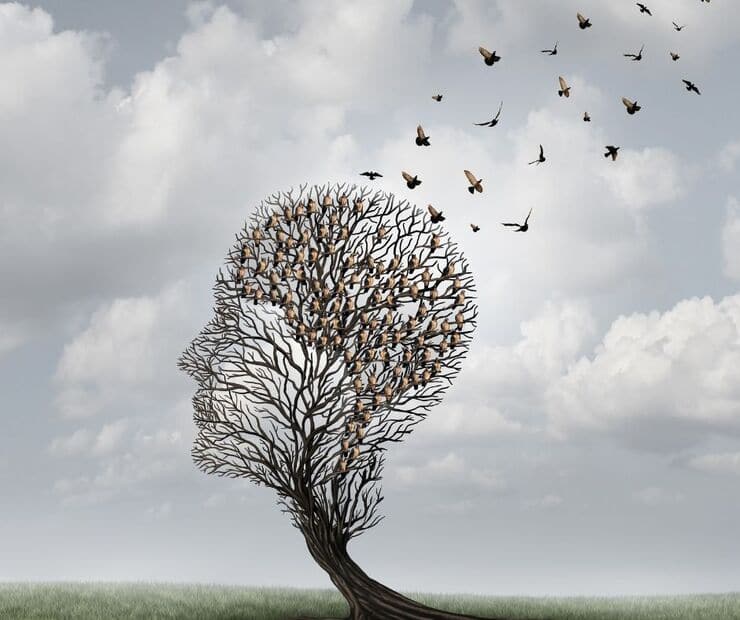
Any loss in life will naturally cause grief, like the death of a loved one or pet. Also, a relationship dissolving or job loss can be painful. Everyone deals with loss differently, and unfortunately, healing does not come with an instruction manual. Healing from loss requires working through emotions and feeling the pain. We all grieve differently.
Having an awareness of the stages of grief will help anyone, but it is not a one-size-fits-all. In 1969, Elisabeth Kübler-Ross, a psychiatrist, described the five stages of grief in her book, Death and Dying. Since then, other sources have added steps. Some models show seven stages of grief. Mourning has no schedule and does not go by any book. Anyone who has suffered a tremendous loss knows the process does not always follow a chronological order.
Avoiding grief can stem from many reasons. Not facing the loss prolongs healing and can cause long-term social and emotional damage. An example may be having a stoic family, where they discourage displaying emotions and seeking professional help. Other deterrents include a lack of awareness and a poor support system. Some do not want to think about the pain and quickly return to their daily routines and habits. Avoidance tactics will have ramifications down the road. How one copes with grief depends on the situation, person, and environment.
Holding onto pain negatively affects behaviors, and the stages of grief may become an ongoing vicious cycle. An inability to overcome loss can manifest into psychosomatic health issues and mental health disorders. To obtain more knowledge on what is known as incomplete grief, visit the lessons that SF Help Organization offers.
Some experts claim that denial, the first stage of grief will be brief for those who do not want to face it. They believe the second and fourth stages, anger, and depression may become an ongoing, vicious cycle. This article claims the third stage, bargaining, or discussing the loss, has the shortest period. The bargaining stage can take years to reach because opening up about grief does not come easy.
If someone bottles up their emotions, they will not get to the bargaining or acceptance stage. Unresolved grief can cause someone to bounce between anger and depression in an unhealthy cycle. Burying grief can cause significant damage to current relationships and inhibit future ones. Fearing further loss prevents closeness to others or creates a divide. Those who have not appropriately grieved may have trust and abandonment issues. Someone can also develop compulsions to keep the mind busy and not focus or cope with the loss.
Anger may manifest into a rage with the feeling that the world is unfair and out to get them. Resentment may couple with bouts of depression, and they may lash out and blame others. What can one do to move beyond the pain and live a healthier life? When coping with grief, moving past the pain does not mean you forget the loss. Your lost loved one would not want you to suffer for the rest of your life. They would wish for you to make the most out of the time you have.
How to confront unresolved grief:
- Knowing you still hold onto the pain and need to let it go requires self-awareness and motivation to resolve inner turmoil. Once you see how your pain impacts yourself and others, you can begin to work on it.
- Having confidence that you will overcome the loss needs to be present. When you identify the pain, you can allow yourself to feel it and healthily express it.
- Understanding that grieving takes time and requires patience makes it easier to confront your pain. You can then begin the grieving process. Grief and loss have no deadline as long as you continue and try to work past them.
- Finding a solid support system where you feel safe will help you discuss your loss and sort things out. After you work through the “bargaining” stage with compassionate people, you will see yourself moving away from the pain.
- Seeking additional support may be a step you need to take depending on the severity of the unresolved grief. If you feel that friends and family do not understand you or have no time, contacting a professional can help resolve underlying issues. An experienced professional can help you go deeper into the pain while offering support. There is no shame in asking for help because the longer you go without, the more damage it causes to you and others.
Many books on the market give tips, timeframes, and expert advice on grief and loss. However, it all comes down to acknowledging the pain, how you mourn, and working on accepting it. The Tao of Loss and Grief by Pamela Metz offers a spiritual and insightful approach to coping with pain. The book acts as a guide with 81 short chapters to help you overcome grief. You can pick up The Tao of Loss and Grief in times of need and read a short chapter or two when struggling. Metz’s calming words give hope and positivity to guide you through the grieving process.
